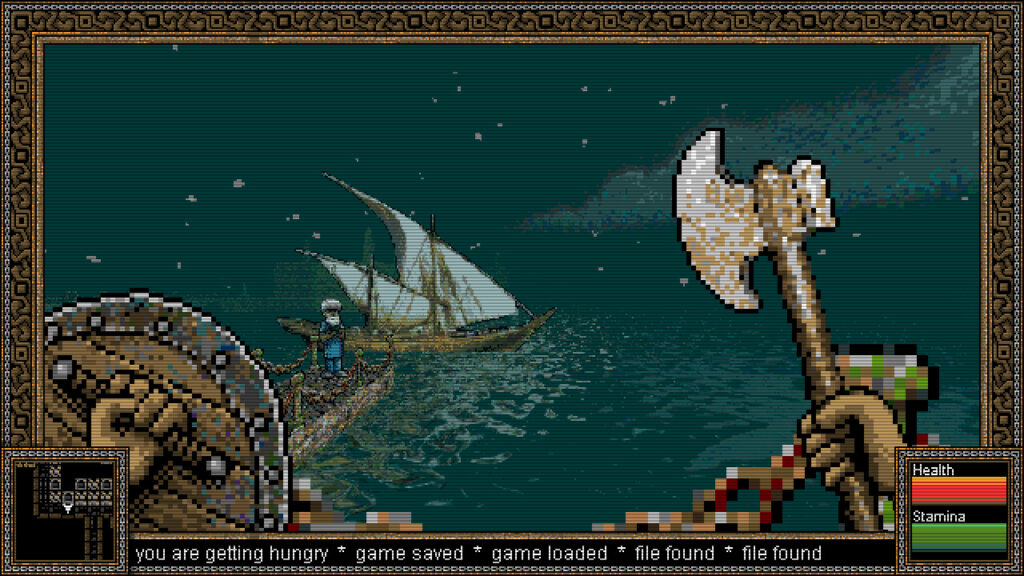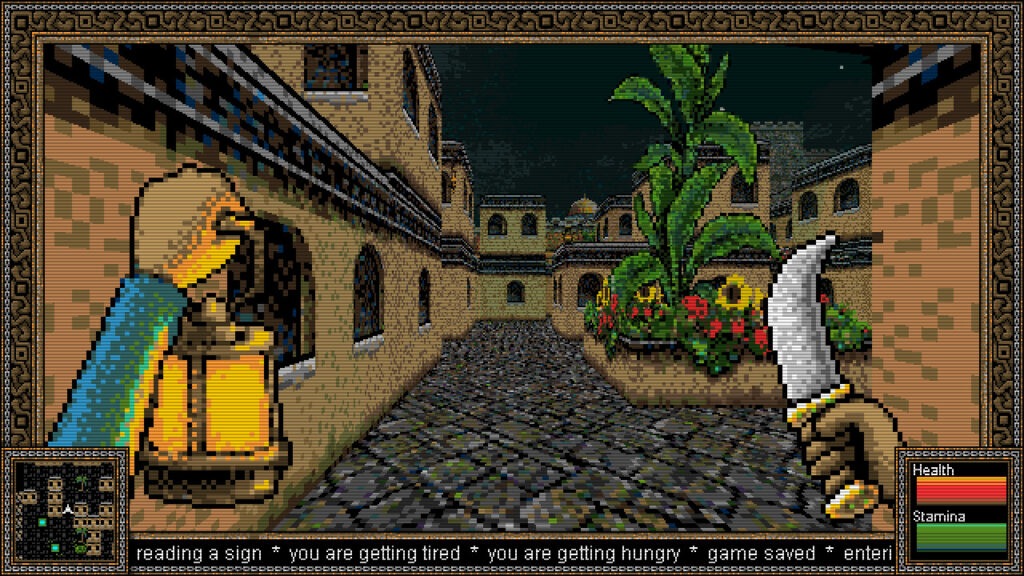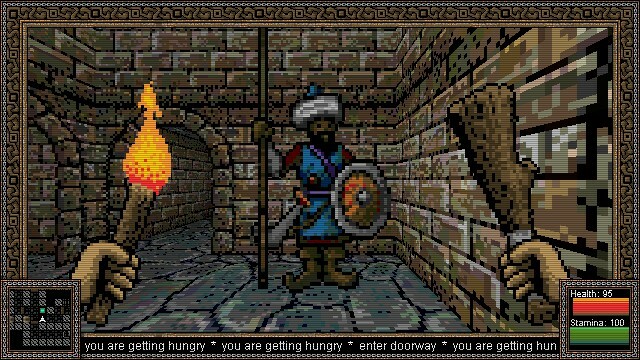Michael Schmidt has been interested in spirituality and Islamic spiritual tradition for a long time, and in his latest game Islands of the Caliph it all comes together. It’s an old-school Action RPG that draws on Middle Eastern folklore and religion. Schmidt developed the game by himself, because “I’ve never been any other kind of developer”.
Schmidt’s own spiritual journey and later his conversion to Islam, were all kickstarted by the video game Windwalker by game developer Greg Malone (and published by Origin in 1989). “That game focused on Buddhist traditions, and somehow made religious practice a fun and engaging aspect of the game”, he says. “To me that was one of the biggest factors in not only my own journey, but also one of the things that made me want to design games.”
Why did you become a solo developer?
“I’ve never been any other kind of developer. I did start a project a few times with a few different teams but nothing was finished in those cases. So it’s kind of by default that I ended up solo. That doesn’t mean I will never work with a group. I guess I just haven’t found my group yet…”
What are the biggest advantages of working solo?
“Having control over every part of the project.”
And the biggest pitfalls
“Having control over every part of the project.”
What’s your creative process?
“Each game has been different. Star Explorers had a very specific vision in mind, and everything I did went into reaching that vision. On the other hand, my game Anomalies was just a small experiment. I wanted to see if I could do a thing. I tried it, if it worked I would keep it. If it didn’t work, I would drop it. The whole game formed organically from these strange trial and error experiments.”

How do you stay motivated through (years of) development?
“As a fine artist I learned to paint very intricate things. It took a lot of time to do it, so I would just get used to doing a tiny section every day. Game development is very different from painting, but this part of it was shared. The motivation for painting is when you get to step back and see the whole thing completed. For games, I don’t really get to do that either, but the players do, and that makes me happy.”
Will you ever work in a team or is it only solo for you?
“I would really have to find the right team.”
Island of the Caliph is based on Middle Eastern folklore and Islamic spiritual tradition. How did you come up with the idea for the game?
“I have been interested in Islamic spiritual tradition for a long time. In 1996 I became a Muslim and have been observant ever since. But the seeds of that came much earlier. I think growing up Protestant/Christian was a big factor, because, despite what popular media would have us believe, the Abrahamic faiths (Islam, Judism and Christianity) are far more similar than they are different. Also, I spent a lot of time learning about other faith traditions, and I think it is a good thing to learn as much as possible about different people and their beliefs.”

“One big factor was the video game Windwalker by Origin. It focused on Buddhist traditions, and somehow made religious practice a fun and engaging aspect of the game. That really got me thinking about religions other than Christianity, and started me on my spiritual journey. Yes, a video game did that! To me that was one of the biggest factors in not only my own journey, but also one of the things that made me want to design games. To Greg Malone, wherever you are, thanks!”
What’s the biggest lesson learned from this project?
“Incorporating spiritual traditions in video games is not easy. It is hard to balance something deep and meaningful with game mechanics while keeping things enjoyable for the player. I know it can be done, but I would not claim that I was successful. Only the players will be able to decide that.”
The toll on your mental health can be quite high. How do you deal with that?
“Honestly the spiritual tradition part is the most helpful thing for me. Keeping your life priorities straight is one of the things religion can do. They almost all emphasize keeping personal relationships and kindness to others as a center for your life. Prayer, reflection meditation etc. These are things that help clear the mind and prevent getting bogged down in the negative stuff that happens in the world.”
“Charity allows us to give back and stop feeling entitled and instead feeling grateful for what we have. I can’t honestly think of a better feeling to have than feeling grateful. And fasting is a way to help control our base desires that can really screw up our lives when not kept in check.”

“These things are pretty standard across most religions and I think that is an important thing that gets overlooked by the other, sometimes minor differences. I think these things can be practiced with or without a specific belief too. I believe there are basic human benefits in all of these practices, but for me the spiritual side of it is important and key to making it work.”

